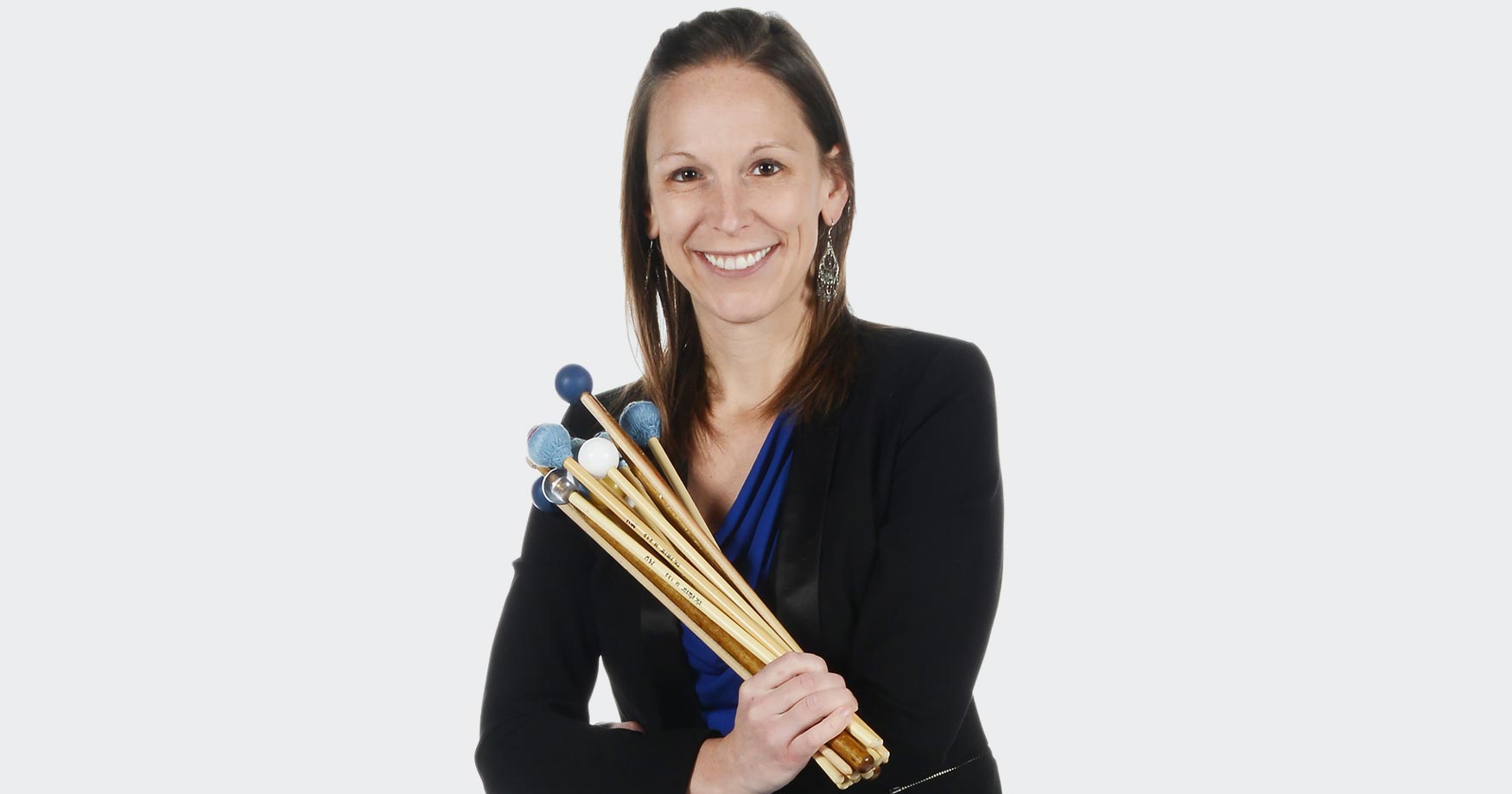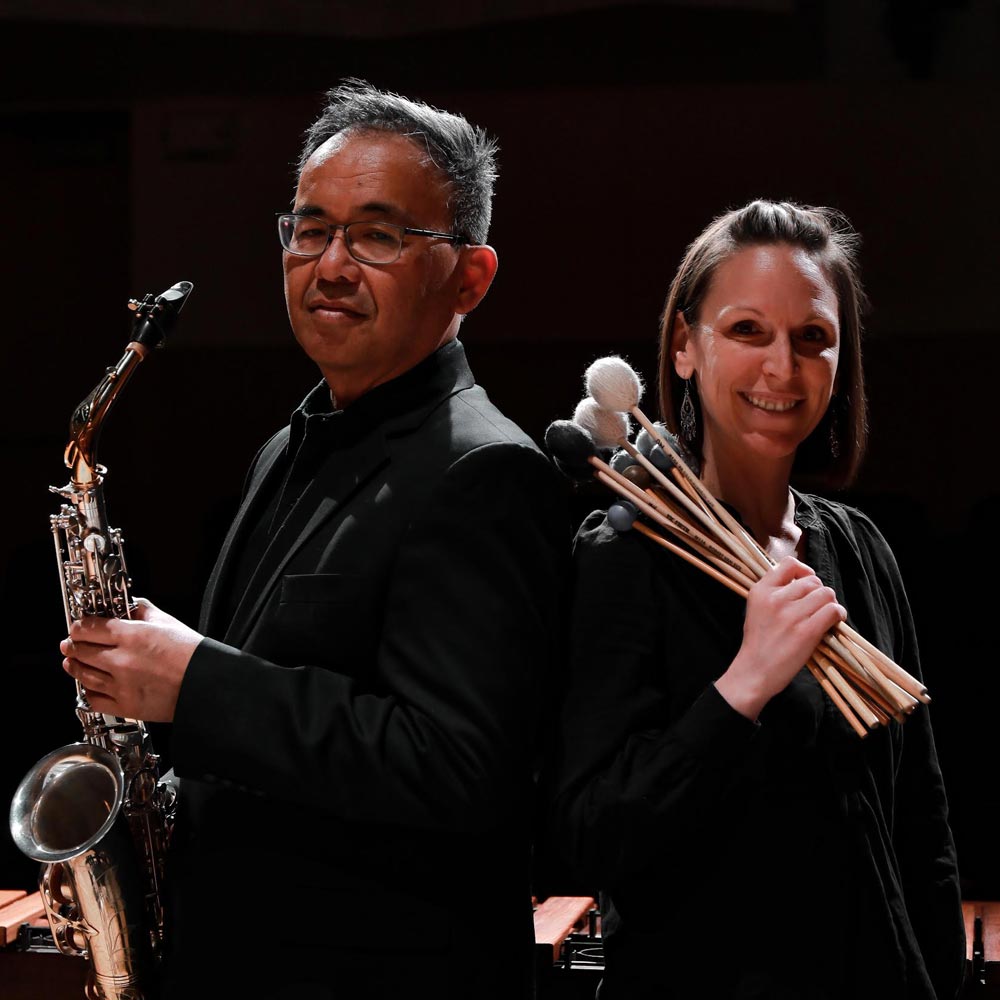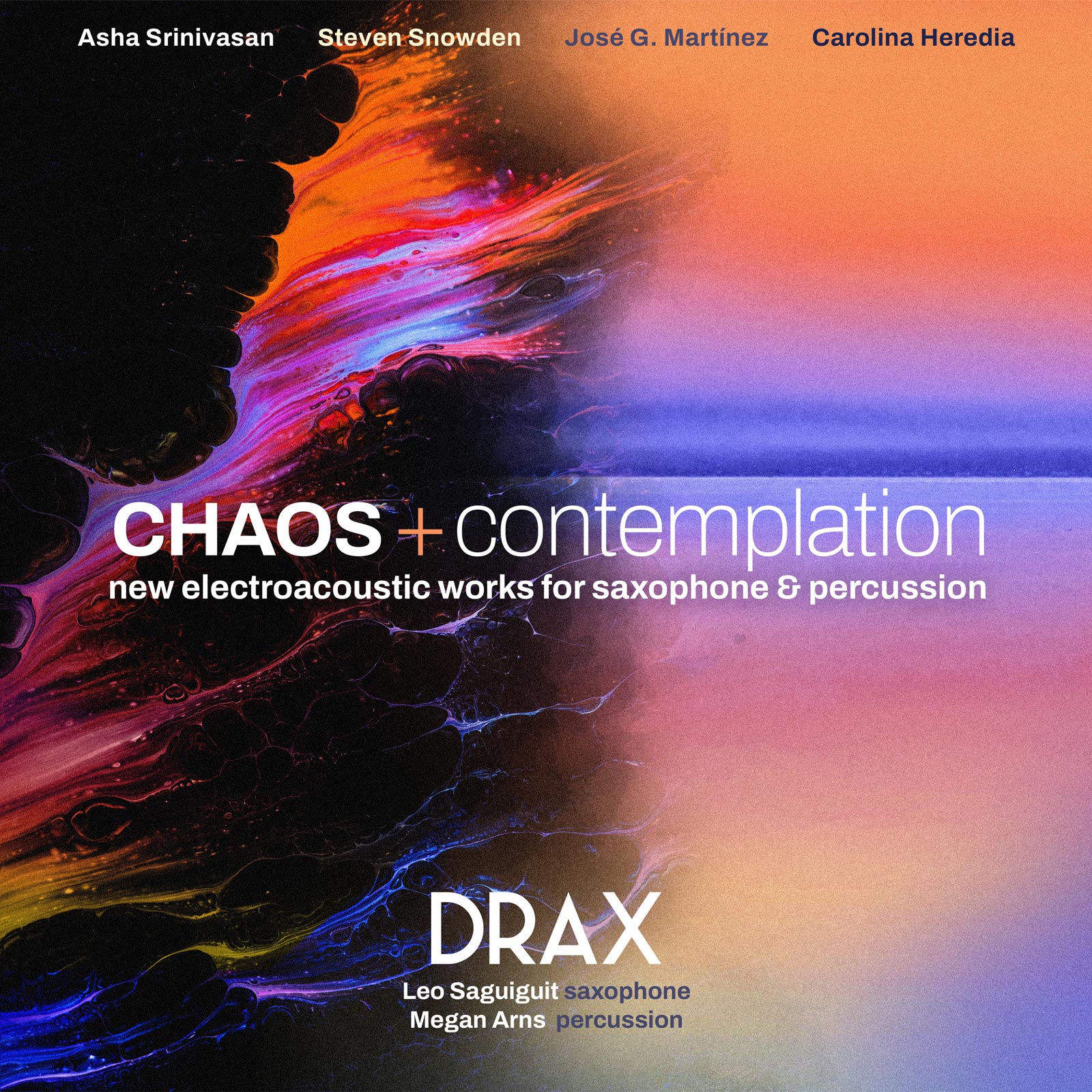
Having commissioned a diverse range of composers in terms of style, ethnicity and gender, DRAX ambitiously attempts to scrutinize and reflect upon current social issues on CHAOS + CONTEMPLATION. Political turmoil, mass hysteria, and the impact of ubiquitous technology are among the motifs presented, and the resulting music is energetic, unapologetic, and raw.
Today, DRAX duo member Megan Arns is our featured artist in “The Inside Story,” a blog series exploring the inner workings and personalities of our composers and performers. Read on to learn why she’d choose Bali as a creative escape destination, and how this album gives its listeners room to develop their own interpretations…
If you could make a living at any job in the world, what would that job be?
While I love my job, my true dream job would be working at a community music center that regularly offers classes in music traditions from around the world taught by culture bearers. This center would also offer the community regular opportunities to see authentic music from around the world played live in creative spaces. I truly believe that by experiencing and learning to appreciate different cultures, in this case music and art from different cultures, our world would be a better, more understanding place to live.
If you could spend creative time anywhere in the world, where would it be and why?
I have too many answers to this question! If I had to pick one, it would be Bali. I played in gamelan orchestras throughout my graduate degrees and really fell in love with the music and culture. From my lens as a contemporary American percussionist, there are so many interesting angles to explore Balinese music from: the intricate rhythmic structures, the unique pitch content, and of course the cultural significance – from competitions, to religious ceremonies, to modern compositions. I don’t currently have access to these instruments, and it would be a huge undertaking to try to bring one to my school. Therefore, it seems like a dream location to spend some creative time!
If you could make a living at any job in the world, what would that job be?
I like my job, working with young musicians – teaching, researching, and performing. Had I learned the science and insights I have now, I would have liked to perform more actively.
If you could instantly have expertise performing one instrument, what instrument would that be?
Violin. For some reason I have always been drawn to string instruments in addition to percussion. I love the portability of the violin (it’s a lot easier to move than a marimba!!), the cultural significance it plays in our nation’s musical heritage, the camaraderie that must be felt playing amongst a string section, and just the pure sound of the instrument. While I have dabbled in other instruments throughout my life, I don’t think I could bear starting at the beginner’s level on this instrument. I will just enjoy listening and appreciating it as an outsider… unless I am granted this instant expertise!
What was your favorite musical moment on the album?
Although it is abrasive and loud (intentionally!), I love the power and angst the first note of Asha Srinivasan’s piece brings. Both the saxophone and percussion are wailing on their instruments, inviting the listener in to feel and reflect. This moment sets the tone for the piece, and the album in general. In contrast to this opening energy, the final moment of the album is much quieter and subdued. Carolina Heredia has the percussionist on the floor playing wind chimes and the saxophonist almost growling to exhaustion. In the score, she says: “The character of this section should be completely detached from and indifferent to the intensity in the rest of the music. Withdrawn and introspective, each in their own world.” To me, this is a reminder that we all have a unique perspective and must all individually take time to process what has happened and move forward in the world.
What does this album mean to you personally?
I would like to invite audiences to listen to our album through their own unique perspective. We have all been through a lot the past few years, and each piece is a very personal reflection from the composers with a personal interpretation by the musicians. Now it is your turn to close your eyes, listen, and reflect. Here is a quote from our liner notes:
We wanted our project to reflect the voices of a diverse group of composers in their aesthetic approaches, as well as their different perspectives with respect to gender and ethnicity. Other than a time limit, composers were given free reign with their choice of instrumentation, multimedia element, and thematic subject. What resulted was a remarkable collection of works that comment on—both directly and indirectly—the emotional rollercoaster of the continuing tumultuous political and social landscape of the last several years. We also hear from the different perspectives of composers living in America, from the born-and-raised, to the first-generation citizen, and to recent transplants from abroad. The music challenges the listener while also unleashing the unlimited soundscape of the saxophone/percussion duo with electronic music.

Formed in 2014, DRAX is a faculty ensemble-in-residence at the University of Missouri School of Music with Leo Saguiguit (saxophone) and Megan Arns (percussion). Dedicated to performing and creating new repertoire for this unique combination of instruments, the duo made its international debut at the World Saxophone Congress in Strasbourg, France. DRAX has performed at the Mizzou International Composers Festival, the Percussive Arts Society International Convention, conferences of the North American Saxophone Alliance, Odyssey Chamber Music Series of Columbia, Mareck Center for Dance, and residencies at universities including Virginia Tech University, Sam Houston State University, Colorado State University, and the Eastman School of Music.

